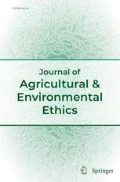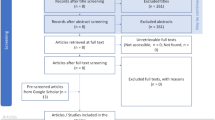Abstract
Food citizenship is considered a helpful tool for extending the debate about the rights and duties of citizens to the field of food, and for fomenting participation of all actors in the governance of agri-food systems. Despite its generalized use, this concept has still to be systematically defined. The objective of this article is to apply the analytical framework of citizenship to the food dimension in order to identify the features which, from an analytical perspective, characterise food citizenship. By reviewing the available literature, we identify which are the constituent elements associated with the current concept of citizenship and we explore the treatment that different food theory approaches give to them. We also analyze what are the characteristics attributed to food citizenship by scholars and food movement practitioners. In addition, we propose a theoretical model of food citizenship structured into eight propositions. These propositions have as core ideas an extended concept of the right to food, the assumption of obligations, the combination of public and private behavior, the individual and collective participation, the empowerment of all actors of the agri-food system, the promotion of justice, fairness and sustainability in food systems, and a cosmopolitan character of food citizenship. The theoretical model of food citizenship we propose is a framework under construction, but we believe it to be a useful tool to stimulate theoretical debate about the concept, guide empirical research and foment citizen awareness about food issues.
Similar content being viewed by others
Notes
Taken from FAO (2003).
The section in bold is ours.
Cosmopolitan citizenship has been identified with a form of moral universalism (Nussbaum 1994) as well as with a democratic model, that of “Cosmopolitan Democracy” (Held 1995). Both conceptions of cosmopolitanism defend the creation of a wider framework for citizenship that incorporates universal values and democratic international procedure and institutions (Peña 2000). They have been criticized for appealing to abstract notions of humankind and ignoring the real links which connect citizens with their communities and culture (Parekh 2003; Knight Abowitz and Harnish 2006). To overcome these criticisms some authors such as Faulks (2000) and Dobson (2003) speak of Post-Cosmopolitanism Citizenship.
References
Alkon, A. H., & Mares, T. M. (2012). Food sovereignty in US food movements: Radical visions and neoliberal constraints. Agriculture and Human Values. doi:10.1007/s10460-012-9356-z.
Allen, P. (1999). Reweaving the food security safety net: Mediating entitlement and entrepreneurship. Agriculture and Human Values. doi:10.1023/A:1007593210496.
Allen, P. (2004). Together at the table: Sustainability and sustenance in the american agrifood system. University Park: The Pennsylvania State University Press.
Allen, P., FitzSimmons, M., Goodman, M., & Warner, K. (2003). Shifting plates in the agrifood landscape: The tectonics of alternative agrifood initiatives in California. Journal of Rural Studies. doi:10.1016/S0743-0167(02)00047-5.
Anderson, M. D. (2012). Beyond food security to realizing food rights in the US. Journal of Rural Studies. doi:10.1016/j.jrurstud.2012.09.004.
Baker, L. E. (2004). Tending cultural landscapes and food citizenship in Toronto’s community gardens. Geographical Review. doi:10.1111/j.1931-0846.2004.tb00175.x.
Bakker, E., & Dagevos, H. (2011). Reducing meat consumption in today’s consumer society: Questioning the citizen-consumer gap. Journal of Agricultural and Environmental Ethics. doi:10.1007/s10806-011-9345-z.
Beauchamp, T. L., & Childress, J. F. (2001). Principles of biomedical ethics. New York: Oxford University Press.
Benedicto, J., & Morán, M. L. (2007). Becoming a citizen. Analysing the social representations of citizenship in youth. European Societies. doi:10.1080/14616690701314085.
Benford, R., & Snow, D. (2000). Framing processes and social movements: An overview and assessment. Annual Review of Sociology. doi:10.1146/annurev.soc.26.1.611.
Beuchelt, T. D., & Virchow, D. (2012). Food sovereignty or the human right to adequate food: Which concept serves better as international development policy for global hunger and poverty reduction? Agriculture and Human Values. doi:10.1007/s10460-012-9355-0.
Chackal, T. (2016). Autonomy and the politics of food choice: From individuals to communities. Journal of Agricultural and Environmental Ethics. doi:10.1007/s10806-015-9585-4.
Delanty, G. (2006). The cosmopolitan imagination: Critical cosmopolitanism and social theory. British Journal of Sociology. doi:10.1111/j.1468-4446.2006.00092.x.
DeLind, L. B. (2002). Place, work, and civic agriculture: Common fields for cultivation. Agriculture and Human Values, 19, 217–224.
Desmarais, A. A. (2007). La Via Campesina: Globalization and the power of peasants. Halifax: Fernwood Publishing.
De Tavernier, J. (2012). Food citizenship: Is there a duty for responsible consumption? Journal of Agricultural and Environmental Ethics. doi:10.1007/s10806-011-9366-7.
Dobson, A. (2003). Citizenship and the environment. New York: Oxford University Press.
Dobson, A. (2006). Ecological citizenship: A defence. Environmental Politics. doi:10.1080/09644010600627766.
Dubuisson-Quellier, S., & Lamine, C. (2011). Citizenship and consumption: Mobilisation in alternative food systems in France. Sociologia Ruralis. doi:10.1111/j.1467-9523.2011.00540.x.
DuPuis, E. M., & Goodman, D. (2005). Should we go “home” to eat?: Toward a reflexive politics of localism. Journal of Rural Studies. doi:10.1016/j.jrurstud.2005.05.011.
Escajedo San-Epifanio, L. (2015). Challenging food governance models: Analyzing the food citizen and the emerging food constitutionalism from an EU perspective. Journal of Agricultural and Environmental Ethics. doi:10.1007/s10806-015-9543-1.
Fairbairn, M. (2012). Framing transformation: The counter-hegemonic potential of food sovereignty in the US context. Agriculture and Human Values. doi:10.1007/s10460-011-9334-x.
FAO. (1975). Report of the world food conference, Rome 5–16 November 1974. New York: United Nations.
FAO. (1996). Rome declaration on world food security and world food summit plan of action, Rome 13–17 November 1996. Rome: FAO.
FAO. (2003). Trade reforms and food security: Conceptualising the linkages. Rome: Commodity Policy and Projections Service, Commodities and Trade Division.
FAO. (2005). Voluntary guidelines to support the progressive realization of the right to adequate food in the context of national food security. Rome: FAO.
Faulks, K. (2000). Citizenship. London: Routledge.
Food + Justice = Democracy PMAs. (2012). Principles of food justice. Institute for Agriculture and Trade Policy. http://www.iatp.org/documents/draft-principles-of-food-justice. Accessed 04 June 2014.
García, S., & Lukes, S. (1999). Ciudadanía: justicia social, identidad y participación. Madrid: Siglo XXI.
Gómez Benito, C., & Lozano, C. (2014). Constructing food citizenship: Theoretical premises and social practices. Italian Sociological Review, 14(2), 135–156.
Gottlieb, R., & Fisher, A. (1995). Community food security: Policies for a more sustainable food system in the context of the 1995 Farm Bill and beyond. Los Angeles, CA: Lewis Center for Regional.
Gottlieb, R., & Joshi, A. (2010). Food justice. Cambridge, MA: MIT Press.
Hassanein, N. (2003). Practicing food democracy: A pragmatic politics of transformation. Journal of Rural Studies. doi:10.1016/S0743-0167(02)00041-4.
Heater, D. (1990). Citizenship: The civic ideal in world history, politics, and education. London: Longman.
Held, D. (1995). Democracy and the global order. Cambridge: Polity Press.
Hilton, M. (2005). The duties of citizens, the rights of consumers. Consumer Policy Review, 15(1), 6–12.
Holt-Giménez, E., & Shattuck, A. (2011). Food crises, food regimes and food movements: Rumblings of reform or tides of transformation? The Journal of Peasant Studies. doi:10.1080/03066150.2010.538578.
Jacobsen, E., & Dulsrud, A. (2007). Will consumers save the world? The framing of political consumerism. Journal of Agricultural and Environmental Ethics. doi:10.1007/s10806-007-9043-z.
Jelin, E. (2000). Towards a global environmental citizenship? Citizenship Studies. doi:10.1080/136210200110021.
Johnston, J. (2008). The citizen-consumer hybrid: Ideological tensions and the case of Whole Foods Market. Theory and Society. doi:10.1007/S11186-007-9058-5.
Knight Abowitz, K. T., & Harnish, J. (2006). Contemporary discourses of citizenship. Review of Educational Research. doi:10.3102/00346543076004653.
Kymlicka, W., & Norman, W. (1994). Return of the citizen: A survey of recent work on citizenship theory. Ethics, 104(2), 352–381.
Lang, T. (1998). Towards a food democracy. In S. Griffiths & J. Wallace (Eds.), Consuming passions: Cooking and eating in the age of anxiety (pp. 13–24). Manchester: Manchester University Press.
Lappé, F. M. (1990). Food, farming, and democracy. In R. Clark (Ed.), Our sustainable table (pp. 143–159). San Francisco: North Point Press.
Leão, M., & Maluf, R. S. (2012). Effective public policies and active citizenship: Brazil´s experience of building a Food and Nutrition Security System. Brasília: ABRANDH.
Levkoe, C. Z. (2006). Learning democracy through food justice movements. Agriculture and Human Values. doi:10.1007/s10460-005-5871-5.
Lockie, S. (2008). Responsibility and agency within alternative food networks: Assembling the ‘citizen consumer’. Agriculture and Human Values. doi:10.1007/s10460-008-9155-8.
Loo, C. (2014). Towards a more participative definition of food justice. Journal of Agricultural and Environmental Ethics. doi:10.1007/s10806-014-9490-2.
Lozano, C., Luque, E., & Moreno, M. (2013). Estrategias e interpretaciones del etiquetado alimentario entre productores y consumidores en España. Revista Economia Agricola, 59(2), 53–67.
Lyson, T. (2000). Moving toward civic agriculture. Choices, 15(3), 42–45.
Marshall, T. H. (1992[1950]). Citizenship and social class. In T. H. Marshall & T. Bottomore (Eds.), Citizenship and social class (pp. 1–51). London: Pluto Press.
Martinez-Torres, M., & Rosset, P. (2010). La Vía Campesina: The birth and evolution of a transnational social movement. The Journal of Peasant Studies. doi:10.1080/03066150903498804.
Maxwell, S. (1996). Food security: A post-modern perspective. Food Policy. doi:10.1016/0306-9192(95)00074-7.
Micheletti, M. (2003). Political virtue and shopping: Individuals, consumerism, and collective action. New York: Palgrave.
Mooney, P. H., & Hunt, S. A. (2009). Food security: The elaboration of contested claims to a consensus frame. Rural Sociology. doi:10.1111/j.1549-0831.2009.tb00701.x.
Nussbaum, M. (1994). Patriotism and cosmopolitanism. Boston Review, 195, 3–34.
Parekh, B. (2003). Cosmopolitanism and global citizenship. Review of International Studies. doi:10.1017/S0260210503000019.
Patel, R. (2009). What does food sovereignty look like? Journal of Peasant Studies. doi:10.1080/03066150903143079.
Peña, J. (2000). La ciudadanía hoy: problemas y propuestas. Valladolid: Universidad de Valladolid.
Renting, H., Schermer, M., & Rossi, A. (2012). Building food democracy: Exploring civic food networks and newly emerging forms of food citizenship. International Journal of Sociology of Agriculture and Food, 19(3), 289–307.
Schudson, M. (2006). The troubling equivalence of citizen and consumer. The ANNALS of the American Academy of Political and Social Science. doi:10.1177/0002716206291967.
Smith, M. J., & Pangsapa, P. (2008). Environment and citizenship. Integrating justice, responsibility and civic engagement. London: Zed Books.
Somers, M. R. (2008). Genealogies of citizenship markets, statelessness, and the right to have rights. Cambridge: Cambridge University Press.
Soper, K. (2007). Re-thinking the ‘Good Life’: The citizenship dimension of consumer disaffection with consumerism. Journal of Consumer Culture. doi:10.1177/1469540507077681.
Turner, B. S. (1997). Citizenship studies: A general theory. Citizenship Studies, 1(1), 5–18.
Turner, B. S. (2001). The erosion of citizenship. British Journal of Sociology, 2(52), 189–209.
United Nations, Committee on Economic, Social and Cultural Rights. (1999). General comment 12, the right to adequate food. UN Document E/C.12/1999/5.
Valencia Saíz, A., Arias Maldonado, M., & Vázquez García, R. (2010). Ciudadanía y conciencia medioambiental en España. Madrid: CIS.
Vía Campesina. (1996). The right to produce and access to land. Food Sovereignty: A future without hunger. http://www.acordinternational.org/silo/files/decfoodsov1996.pdf. Accessed 22 Oct 2015.
Vía Campesina. (2007). Nyéléni Declaration. Sélingué, Malí. http://viacampesina.org/en/index.php/main-issues-mainmenu-27/food-sovereignty-and-trade-mainmenu-38/262-declaration-of-nyi. Accessed 7 Dec 2015.
Wald, N., & Hill, D. P. (2016). ‘Rescaling’ alternative food systems: From food security to food sovereignty. Agriculture and Human Values. doi:10.1007/s10460-015-9623-x.
Walzer, M. (1996). La crítica comunitarista del liberalismo. La política, 1, 47–64.
Wekerle, G. R. (2004). Food justice movements: Policy, planning, and networks. Journal of Planning Education and Research. doi:10.1177/0739456X04264886.
Welsh, J., & MacRae, R. (1998). Food citizenship and community food security: Lessons from Toronto, Canada. Canadian Journal of Development Studies. doi:10.1080/02255189.1998.9669786.
Wilkins, J. L. (2005). Eating right here: Moving from consumer to food citizen. Agriculture and Human Values. doi:10.1007/s10460-005-6042-4.
Acknowledgements
This article was originally prepared for the Workshop “Social Food Studies”, held at UNED, 12–13 March 2015, Madrid. We are grateful to the participants at the seminar and to Professor Jorge Benedicto for their helpful comments on an earlier version of this paper.
Funding was provided by Ministry of Science and Innovation (SP). “Invisible Food. Social Representations of Food Systems: Causes Consequences, and Transformations” (Grant No. I+D+i CSO2010-22074-C03-02).
Author information
Authors and Affiliations
Corresponding author
Rights and permissions
About this article
Cite this article
Lozano-Cabedo, C., Gómez-Benito, C. A Theoretical Model of Food Citizenship for the Analysis of Social Praxis. J Agric Environ Ethics 30, 1–22 (2017). https://doi.org/10.1007/s10806-016-9649-0
Accepted:
Published:
Issue Date:
DOI: https://doi.org/10.1007/s10806-016-9649-0




